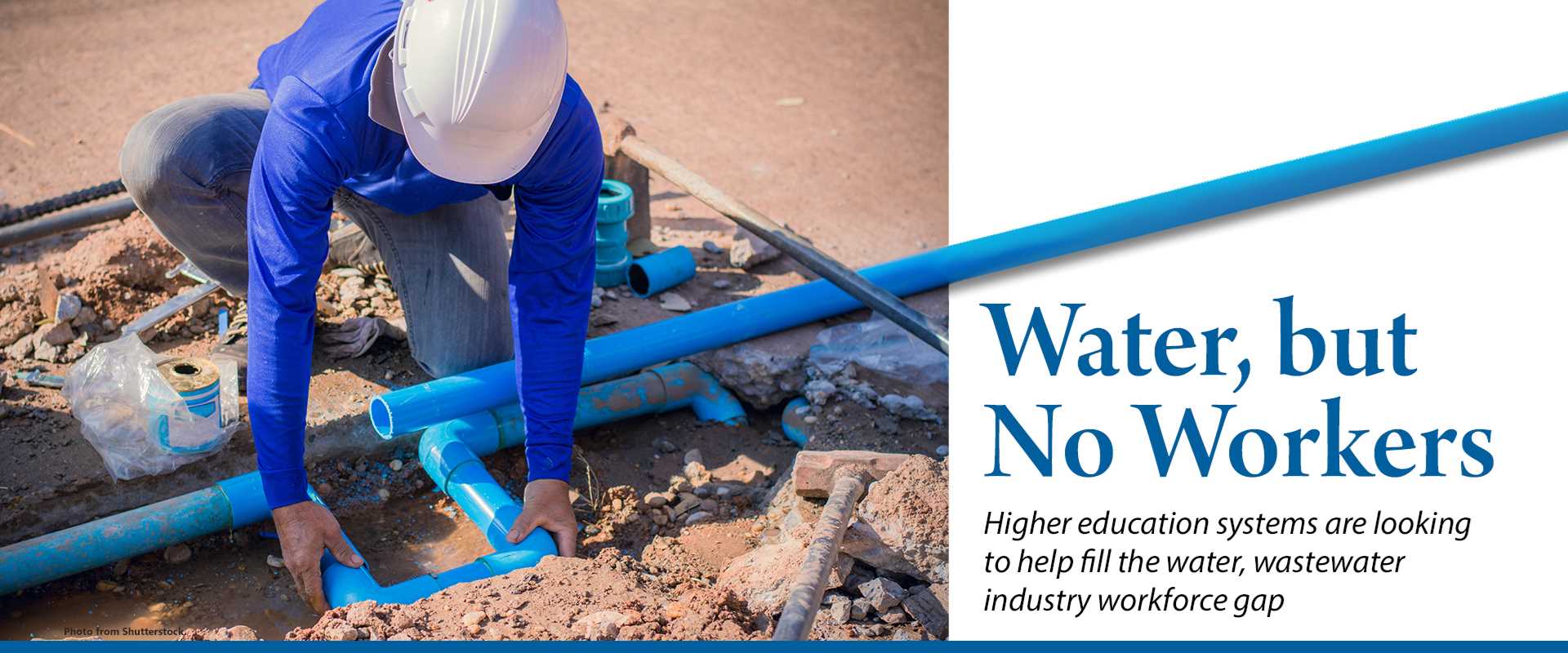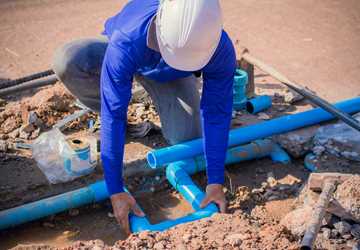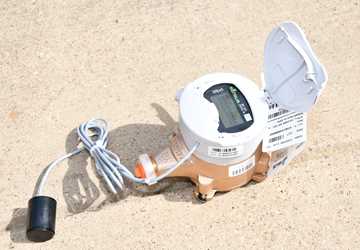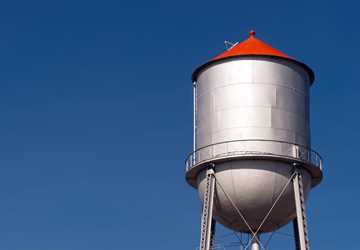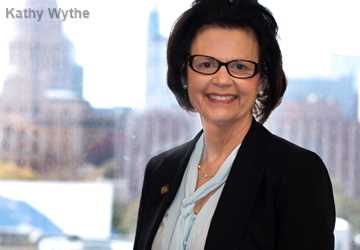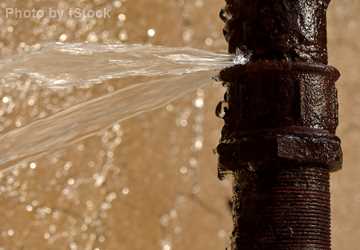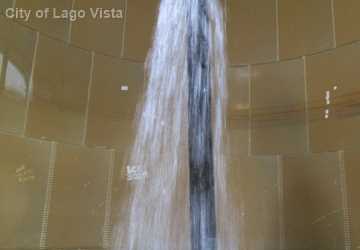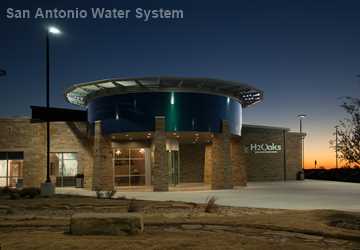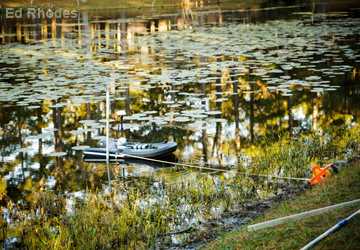The water and wastewater industry is seeing a decline in workers throughout the nation. To help fill the gap in the Texas’ workforce, Texas A&M University-San Antonio (A&M-SA) and Texas A&M Engineering Extension Service (TEEX), an agency of the Texas A&M University System, have created educational pathways to work toward closing the workforce gap.
What’s the concern?
According to Dr. Rudolph Rosen, director of A&M-SA Institute for Water Resources Science and Technology, the need to replace workers in the water and wastewater workforce will increase over the next 10 years.
At a series of industrywide water security planning forums in 2015 and 2016, Rosen said Texas water experts from business, industry, government, academia, research and the investment community expressed concerns about a coming wave of retirements and attrition accompanied by inadequate recruitment to the water workforce.
The Bureau of Labor Statistics has projected that 8.2 percent of existing water operators will need to be replaced annually between 2016 and 2026.
“Forum participants also identified another major issue: the general failure of post-secondary educational institutions to supply workforce-ready graduates for Texas’ evolving urban and rural water sectors,” Rosen said.
Not enough workers are being properly trained for specific advanced treatment technologies and regulatory requirements, meaning they are unable to advance in the workforce.
Dr. Walter Den, A&M-SA professor of water resources science and technology, said without the correct licenses and education, individuals are limited on how far they can move up within the industry.
Texas A&M University-San Antonio and Texas A&M Engineering Extension Service have created educational pathways to work toward closing the water and wastewater industry workforce gap.
More information
- Water Sector Workforce Sustainability Initiative, Water Research Foundation
- Water security for Texas: a post-secondary
education pathway for water workforce readiness, Texas Water Journal - Water and Wastewater Workforce, a U.S. Government Accountability Office report
Want to get txH20 delivered right to your inbox? Click to subscribe.
Small water utilities in rural areas may be hit the hardest by the decreasing workforce.
Rosen said while Texas may be doing better than many states, the challenge of keeping workers in small rural utilities will be more difficult as the labor market for water workers tightens.
“Finding individuals trained to work in water systems can be challenging,” he said. “So we believe recruiting water degree students from rural communities will help develop a water workforce with the training and desire to support water treatment needs throughout all of Texas.”
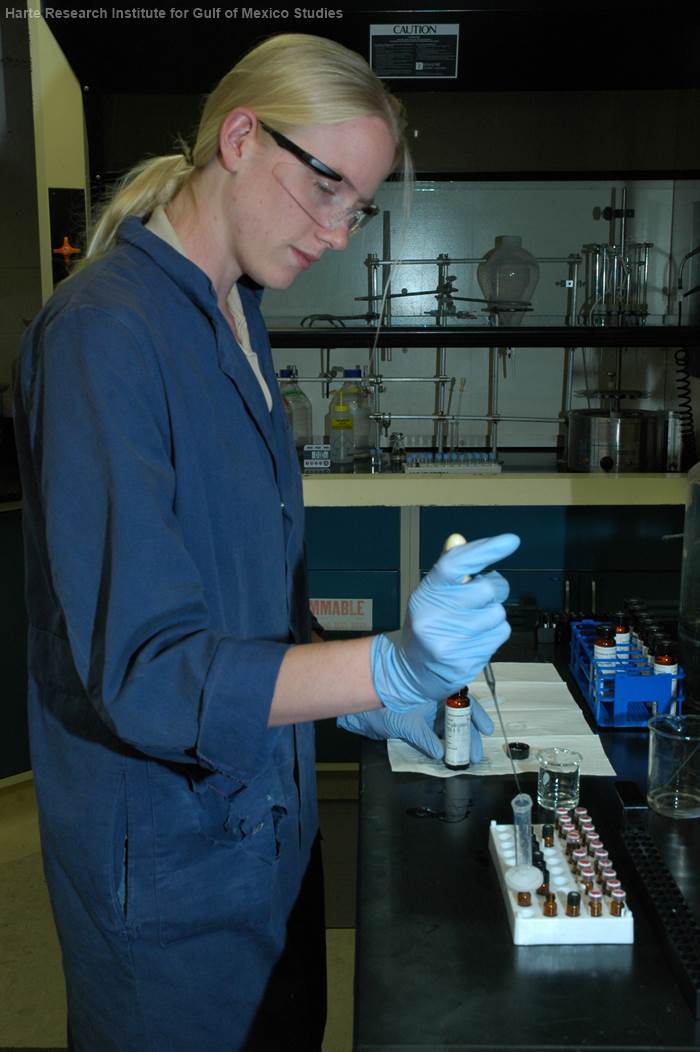
Filling the gap with education
A&M-SA is helping expand the water workforce by creating a bachelor’s and master’s degree program through the Water Resources Science and Technology Program. The Texas A&M University System Board of Regents approved the degree-conferring program in 2015.
Den said the degree program was designed to fill the workforce gap and fulfill the needs of different workers in the water industry.
Beginning in the fall of 2019, pending final approval by the Southern Association of Colleges and Schools Commission on Colleges, students who are interested in getting a Master of Science degree specifically geared toward the water industry will be able to do so.
Additionally, beginning in the fall 2020, undergraduate students can earn a Bachelor of Science in water resources science and technology. Another option, currently in the approval process, is the Bachelor of Applied Arts and Sciences degree, designed for students who already have an associate degree. These programs will give students the tools necessary to work in the water or wastewater workforce.
Den said the Bachelor of Science program will have 40 percent technical courses, 40 percent policy courses and 20 percent management courses, all from the water industry perspective.
He encouraged undergraduate students who want to go to school prior to the beginning of the program to major in biology. Students studying biology at A&M-SA are able to take water resources courses along with other core curriculum classes. Once the degree is officially offered, those students will be able to transfer swiftly into the water resources degree.
Finding individuals trained to work in water systems can be challenging. So we believe recruiting water degree students from rural communities will help develop a water workforce with the training and desire to support water treatment needs throughout all of Texas.
Den explained that over time, individuals in the workforce have gotten stuck on the work ladder because they only had licenses that were job-specific. Creating these degrees will allow workers the opportunity to receive degrees and have the chance to climb that work ladder.
Den said the two bachelor’s degrees are intended for students with no prior work experience in the industry. But they would also be a good fit for those with industry training who would like to complete a college degree.
Den said all degree programs will provide internship opportunities with local partners, offering students the prospect of gaining valuable practical skills through experiential learning and research.
Distance learning
Allowing water utility and wastewater workers to get their education through distance learning, whether through TEEX or A&M-SA-community college collaboration, is another way to counteract the decline.
Throughout the year, TEEX holds water and wastewater training schools for all water utility and environmental professionals as well as operators and technicians. The schools can provide the training hours necessary for obtaining professional licenses required by the Texas Commission on Environmental Quality. There are also courses available online for training, such as Public Water System Security that provides a better understanding of how to recognize and assess potential security issues related to water and wastewater plants.
As part of the Water Industry Professional Recognition Program, TEEX offers certificate programs for both water and wastewater operators and professionals.
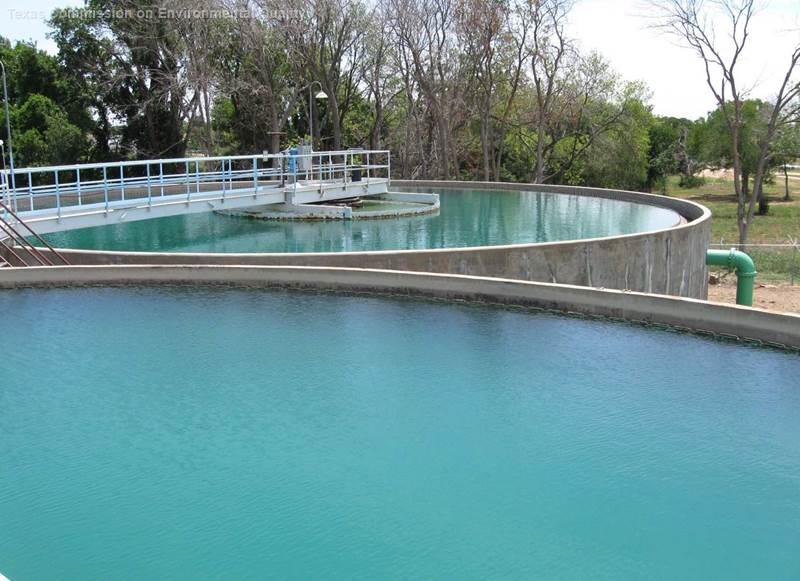
The water industry will continue to require professionals be properly trained in the latest technologies to ensure safe water quality. Den said A&M-SA hopes to be a model for other universities and community colleges that want to start their own water programs.
Explore this Issue
Authors
Bianca was a communications student worker for the Texas Water Resources Institute, providing assistance to the communications team with the institutes’ publications, including Conservation Matters and txH2O magazine.

